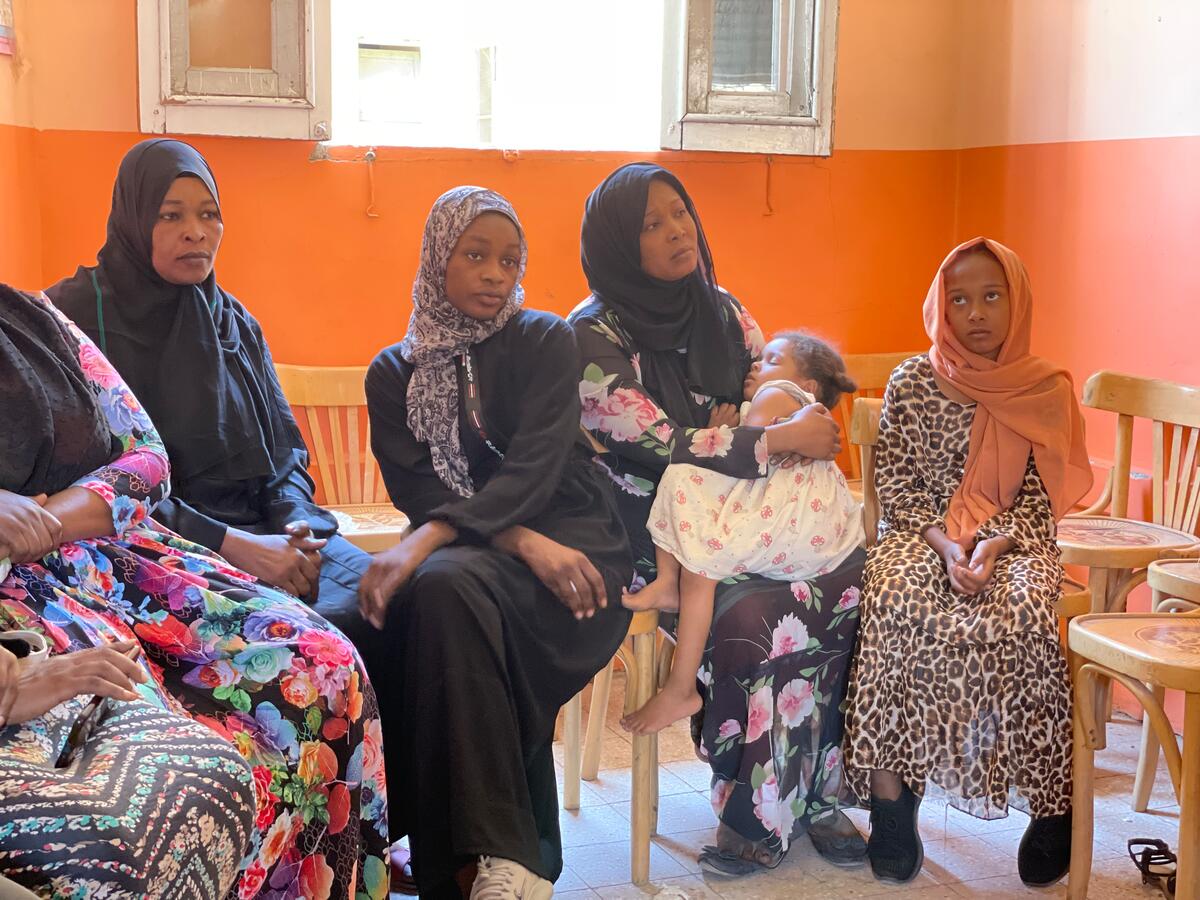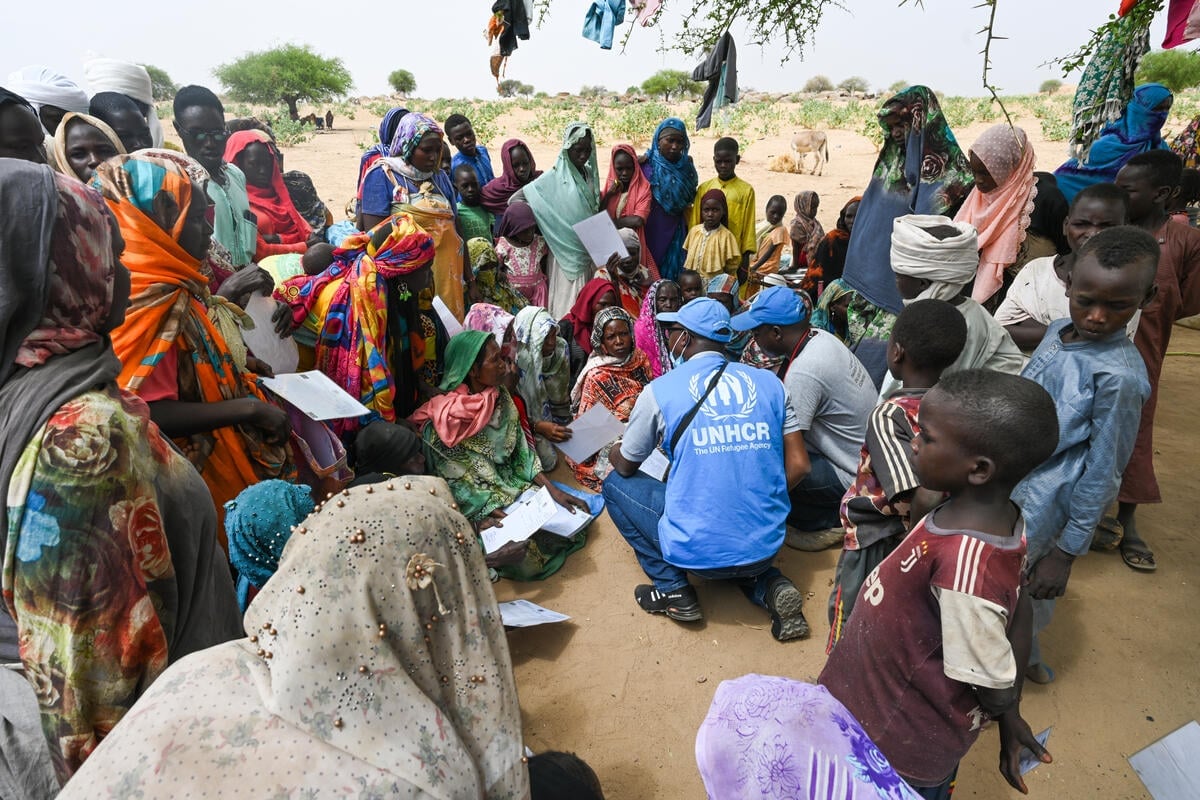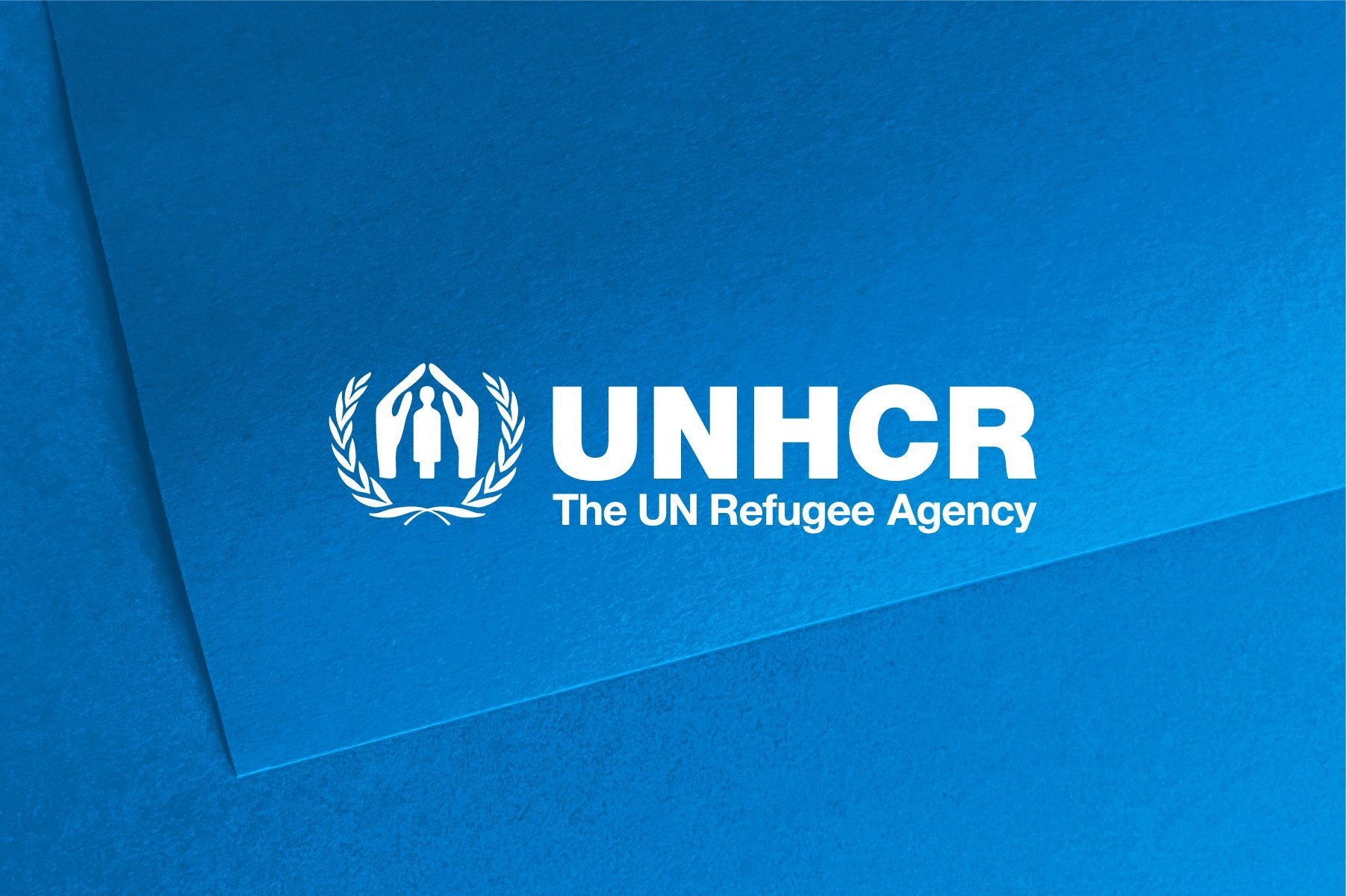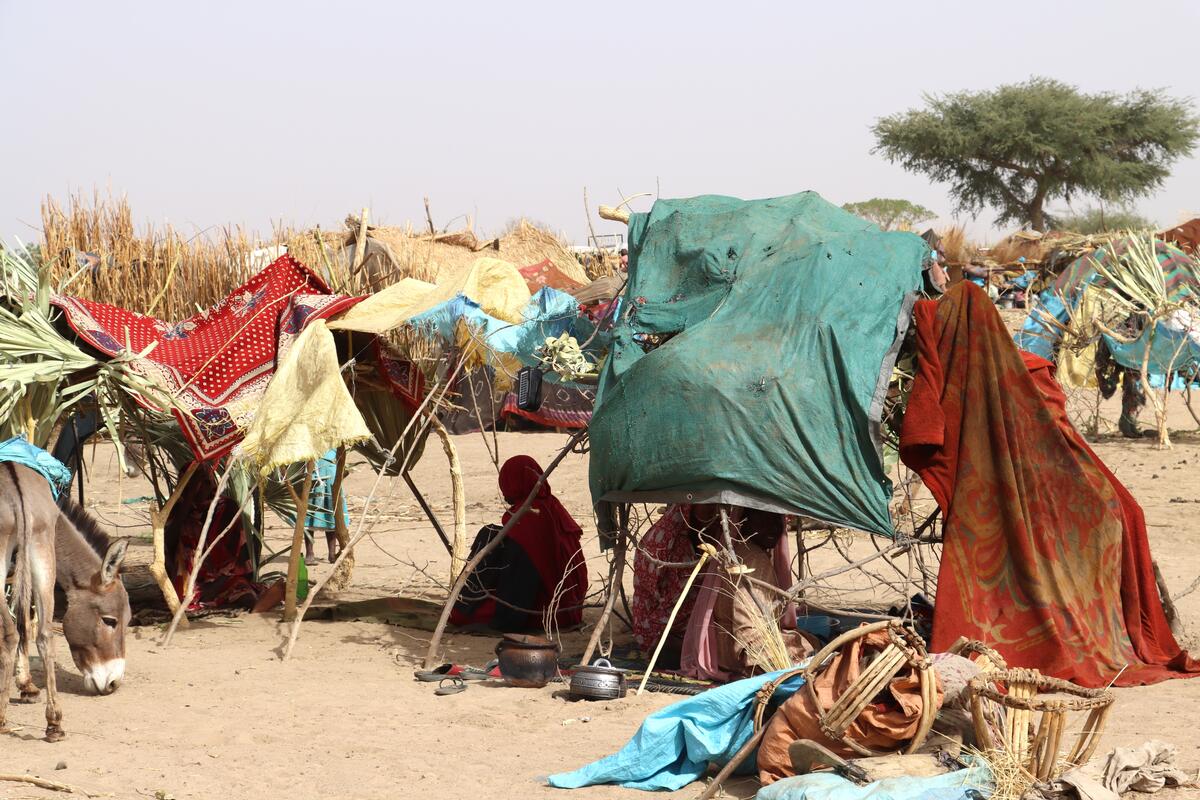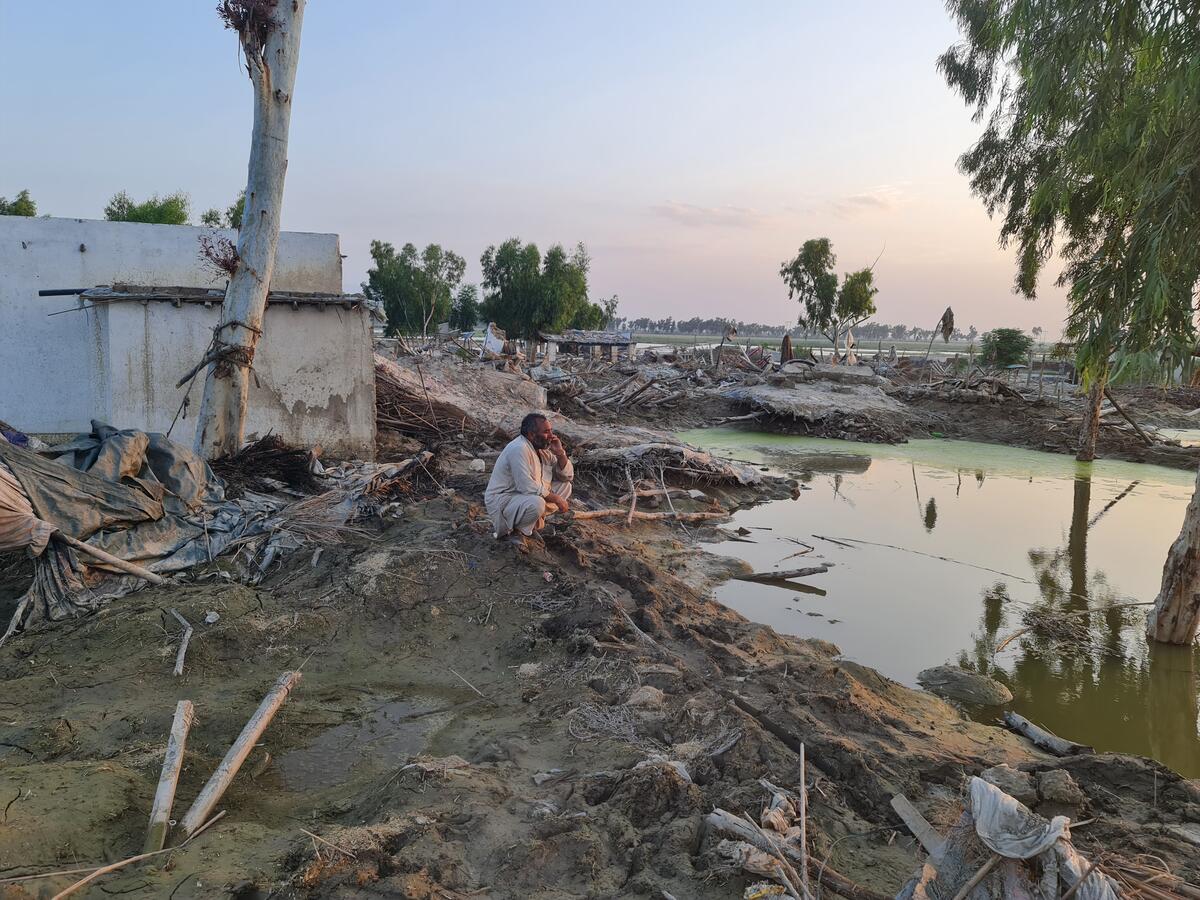Chad: relocation, registration, reinforcement
Chad: relocation, registration, reinforcement
UNHCR's emergency relocation operation in eastern Chad has so far transported some 45,000 Sudanese refugees away from the insecure Chad-Sudan border area to safer inland camps. We hope to have moved at least 60,000 by the start of the rainy season in late May.
We and our Chadian partner, CNAR (Commission nationale pour l'accueil et la réinsertion des Réfugiés), yesterday began registering newly arrived refugees in the Bahai area near the Chad-Sudan border. The refugees told UNHCR that they left their villages early this month after attacks by Janjaweed militia. News of the 45-day cease-fire that was signed on April 8 prompted some of them to come out of hiding in Darfur and walk to Chad. Between 200 and 300 people a week have been arriving in the Bahai and Kariari areas of Chad, both on the northern edge of the 600-km stretch of affected border. The registration in Bahai is scheduled to finish today. CNAR teams will then go to Kariari over the weekend to register the refugees there. Registration is expected to be completed by the beginning of next week. A distribution of food for an estimated 11,000 refugees will then take place in Kariari. It will include sorghum, beans, and corn-soya blend, as well as jerry cans, plastic sheeting and buckets.
The search for a new camp site in the Bahai region is continuing. Yesterday, a team from Norwegian Church Aid (NCA) identified a potential site by the lake in Kariari, 40 km north of Bahai. If UNHCR and the local authorities approve this site for relocation, NCA plans to install a pump system to draw water from the lake. The water will need to be treated before consumption.
We are also reinforcing our presence in the region with the opening of a field office in Bahai city in the next two weeks.
Meanwhile, two more sites - Am Nabak and Mille - are scheduled to open by the end of next week, boosting our total camp capacity by another 12,000. Some 3,000 tents from our stocks in Pakistan are en route to eastern Chad, where we've already erected 11,000 in various camps.


